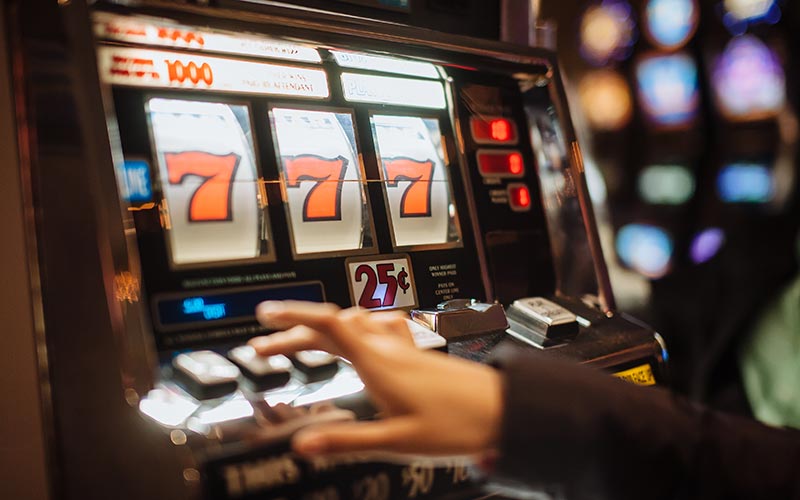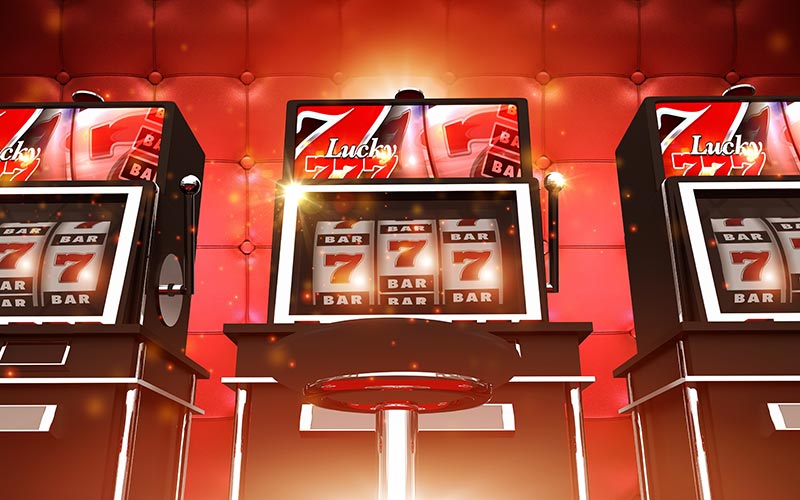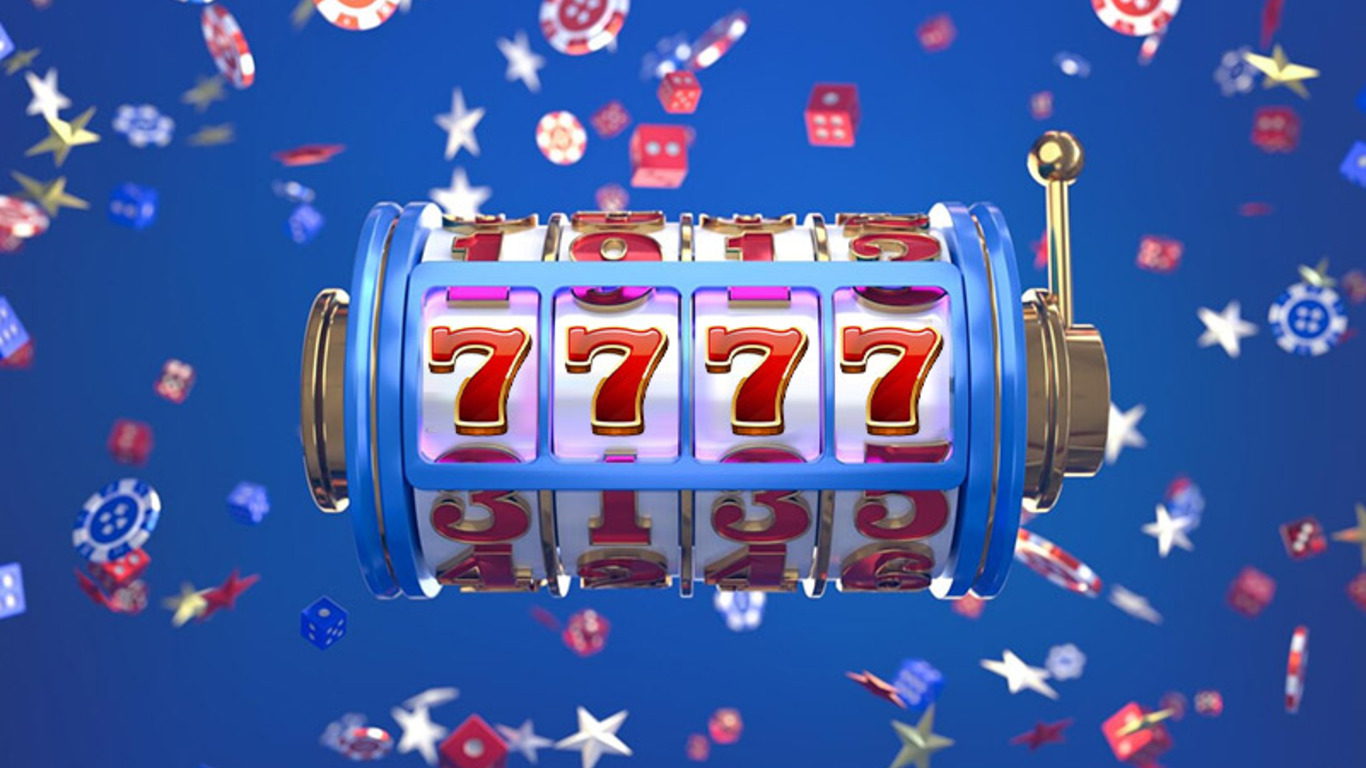The Baltic Gaming Market in 2026: Permits, Taxes, and Prospects
Features of the Local Niche Development

The Baltics are located in Northern Europe and consist of Estonia, Latvia, and Lithuania.
History of the Formation of the Casino Sector
In 2004, these states became full members of the EU, which determined their stable political future and economic prosperity.
The first offline gambling establishments were located in large hotels and were often open only to foreign tourists. Wagering on horse racing was also available. One of the largest hippodromes in the region was located in Riga, the capital of Latvia.
The active development of the market began in the 90s of the last century. At the same time, the first attempts to regulate the niche were made. Thus, in Latvia, a Gambling Commission (Izlozes un azartspelu uzraudzibas inspekcija) was founded in 1998. In the early 2000s, the first licence was issued.
Entertainment for Money in the Modern Baltics
Today, the region can boast of a well-developed service sector, a strong labour market, and a modern IT infrastructure. It is quite easy to launch a business startup here. Entrepreneurs feel comfortable thanks to liberal laws and lower taxes compared to Western Europe.
Advantages of launching an iGaming startup in this area:
- Stable growth of the casino niche. According to the Statista international portal, for the period from 2024 to 2028, the annual growth rate (CAGR) will be 4.76%. Analysts predict that in 2028, the GGR of the industry will reach €884 million. The sector demonstrates high return rates and investment profitability, which attracts foreign capital.
- Liberal legislation. The government allowed all types of games for money and allowed private companies to offer this kind of service. The exception is lottery draws. Such an activity is carried out by state monopolies. The regulatory framework is fully adapted to the requirements of the European Union, including licensing rules, restrictions on advertising, and the protection of socially vulnerable segments of the population.
- High interest in casino solutions. This can be explained by the well-being of locals and clear regulatory rules. The average revenue per user is €1.86 thousand. The increase in ARPU is also affected by the growing penetration of smartphones in the market, the emergence of new genres of entertainment, and minimal restrictions related to the companies’ bonus policies.
- Well-developed IT sector. There are many IT hubs and consulting firms working in the region. Entrepreneurs can place their servers in well-protected data centres, rent premises in modern locations, and sign contracts with reliable hosting providers. The Baltic can be characterised by a good digital infrastructure that ensures smooth and uninterrupted transactions.
- Low taxes. Estonia is considered a leader in this field. Here, online casino operators pay only 5% of the GGR for the reporting period, and owners of offline establishments pay 10%. The fiscal burden in Lithuania and Latvia is not much higher, which attracts investment from Western Europe.
Over the past 10 years, the Baltics have become home to many top developers of iGaming solutions. Such companies as Playtech, Ezugi, Betgames.tv, Pragmatic Play, Evolution, Playson, NetEnt, and other popular providers are registered here. They opened representative offices, live studios, and customer service centres in the region.
Estonia

This thriving market has been regulated since 1995. Initially, the local authorities focused on offline casinos and bookmakers’ offices, and over time, the online entertainment sector was added to the list of legal activities.
The local iGaming niche is showing impressive growth rates:
- the expected GGR by the end of 2024 is €88.75 million;
- the predicted GGR by 2028 is €249.4 million;
- the annual growth rate of iGaming and sports betting is 4.62%;
- the expected number of adult users in 2028 is 145.2 thousand people;
- the mobile device penetration rate is 69.2%.
Such rapid development is explained by many factors: a stable regulatory framework, active implementation of technologies, as well as simple and clear licensing rules. A strong economy and a high standard of living also have a positive impact on the market’s growth.
Estonia is one of the most modern states that instantly responds to changes in the users’ preferences. For example, in recent years, live dealer solutions and mobile slots have become incredibly popular. Local legislation permits the operation of mobile and live casinos, which also contributes to the improvement of the sector.
Regulation Rules
Certificates are issued by the Estonian Tax and Customs Board. The validity period of the documents is unlimited.
The government does not oblige entrepreneurs to register a legal entity in Estonia. However, brands must open offices here and place servers in local data centres.
Business owners need to form a minimum authorised capital:
- €1,000,000 for virtual casinos;
- €130,000 for betting and eSports portals;
- €25,000 for skill games.
At the time of filing an application, companies pay a one-time state fee. For a digital platform, this amount is €51,200, and for a virtual bookmaker’s office it is €35,200. The request is considered within 1 month, after which entrepreneurs can legally accept bets from users.
Operators pay only 5% of GGR. Land-based enterprises additionally transfer contributions for each unit of ground equipment.
The fiscal burden on the entertainment sector in the jurisdiction is low compared to other European territories. This creates favourable conditions for launching and scaling iGaming businesses.
Responsible Gambling
The spread of ludomania is a key problem in the local market.
According to a survey by the Kantar Emor web portal, 7% of respondents are at risk. They are close to the state of pathological gambling.
Another important issue is the spread of wagering among minors. 60% of young people from 15 to 19 years old play from time to time, considering gambling a way to earn money rather than entertainment.
In 2019, the government launched a telephone hotline to help addicts. Moreover, the age limit was revised. Access to offline and digital casinos is only open to clients who are 21 years or older. Users over 18 can place bets in bookmakers’ offices, and players over 16 can participate in lottery draws.
The Cultural Endowment non-profit foundation has been operating in the jurisdiction for several years. It receives funds in the form of taxes and licence fees paid by operators. Money is spent on public projects. A part of it is transferred to the Estonian Red Cross.
Latvia
Casino entertainment here has been regulated since 2006 after the law on gambling and lotteries came into force. The document legalised the activities of offline locations and defined the basics of the online sector, as well as the rules for those entrepreneurs who want to obtain a local permit.
The Latvian market is quite stable. It has shown smooth growth over the last 10 years. During the pandemic, the land-based sector suffered minimal losses thanks to the competent policies of the authorities and a partial reorientation to the online sector.
Currently, digital betting holds the leadership in the market. The segment includes iGaming platforms, bookmakers’ offices, and sweepstakes. The growth of virtual gambling in Latvia can be explained by the country’s strong economy and increases in the population’s income.
Another success factor is the growing penetration of smartphones and tablets, as well as the audience’s desire for comfortable and safe gameplay.
All local offline casinos are located in the capital. The most famous and visited establishments are:
- Kazino 777;
- Olympic Voodoo;
- SL Casino Riga.
The Royal Casino Spa & Hotel Resort complex is recognised as the largest entertainment centre in the Baltics. It contains a hotel, casino, concert hall, and several nightclubs.
How to Launch an iGaming Startup
Main provisions of the local law that regulates the industry:
- Entertainment for money includes card games, roulette, dice, bingo, slots, and sweepstakes. The rules for organising and conducting lotteries are specified separately.
- Companies registered in Latvia with an authorised capital of €1,400,000 have the right to become casino operators. The share of foreign funds cannot exceed 49%, except in cases when investments belong to residents from EU countries.
- To legally work in the market, businessmen need to obtain a licence. The document is valid indefinitely but it must be updated every year on the regulator’s official website.
- Owners of offline and digital projects are required to identify all visitors and maintain electronic registers. Prize money up to €720 is paid immediately, from €720 to €14,300 within 24 hours, and above — €14,300. It must be done within 30 calendar days.
- The return on slot machines in land-based locations, electronic roulette, and digital solutions on iGaming platforms should not fall below 80%.
Cost of Starting a Business
An annual update of any type of document will cost €37,000.
The local authorities have introduced a single tax rate for all industry representatives. Companies pay 10% of their GGR. Funds must be transferred every month.
The regulator is actively fighting illegal portals. More than 2,000 domain addresses of digital platforms, sportsbook resources, poker rooms, and website mirrors were blacklisted. This is how the jurisdiction provides support to legal enterprises that work honestly and pay taxes regularly.
According to a study by the Ministry of Health of Latvia (VM), 70,000 people, or 6% of the population, suffer from ludomania. Therefore, one of the government’s priorities is the introduction of mechanisms to protect socially vulnerable categories of the population.
At the beginning of 2023, the authorities launched a unified register of self-excluded persons. Players can enter their data and limit access to casino solutions for 1 year.
Lithuania

Entertainment for money has been regulated since 2001 by a special law and is supervised by the Gaming Control Authority.
Experts predict that by the end of 2024, the GGR will reach €366.8 million. About 62.5% of revenue will come from the online sector, while offline and sportsbook niches will generate 37.5%.
Features of Regulation
All types of gambling in Lithuania are legal. Until recently, virtual sports did not belong to this category, but since 2020, they have been recognised as a betting activity.
Any company with local registration and a physical office in the country can apply for a permit.
Legal entities must:
- confirm the availability of authorised capital of €1,000,000;
- deposit a bank guarantee in the amount of €72,400;
- pay for a licence (€500,000) to launch a virtual platform.
The government has introduced a fixed gaming tax rate. It is necessary to pay 13% of GGR.
Offline establishments that offer slot machines are located in the capital. Many of them work in popular hotels and entertainment complexes, attracting both the country’s residents and tourists.
In Lithuania, all offline gambling products are divided into 2 groups:
- slots with unlimited bets and payouts.
- solutions where the bid is €0.50 per spin and the prize is limited to 200 times the base cost of one rotation of the reels.
The profitability from the first category games is traditionally higher. These options attract customers because of huge payouts and access to progressive jackpots.
Adherence to Responsible Gambling Principles
The Lithuanian legal framework is constantly updated. The latest amendments were introduced in 2022. Their aim was to tighten advertising and combat money laundering, as well as terrorism financing. A separate legislation is devoted to the regulation of table entertainment with live dealers. Its popularity is growing rapidly.
The country has a complete ban on the promotion of casino products, and there are also administrative penalties for non-compliance with regulatory requirements. In 2023, two large Lithuanian operators, Baltic Bet and Top Sport, were fined for violating advertising rules. The total amount of sanctions was €114,644.
Since 2016, the National Register of Self-Exclusion has been operating in the jurisdiction. At the beginning of 2024, more than 11 thousand people were registered in it.
The Baltic Gambling Market 2026
Let us consider the current statistics and forecasts for the casino and sportsbook niche in the Baltic region.
Estonia as a Location for Large Businesses
As of the end of 2024, there were 29 licensed iGaming operators in Estonia, 14 of which are domestic companies and 15 foreign. Besides, 9 providers have licences to manage land-based entertainment halls.
The official organiser of lotteries is Eesti Loto. This is a state-owned enterprise with proper certification.
A full list of legal casino operators is available on the official website of the Estonian Tax and Customs Board (EMTA).
The Statista analytical centre predicts the following pace of the industry’s development:
- Gross gaming revenue (GGR) will reach $452.5 million by the end of 2025.
- The CAGR 2025–2029 will be 2.94%. In 4 years, this will lead to an increase in the market size to $508.1 million.
- The number of users in the entertainment sector is expected to be 513.7 thousand by 2029.
According to IBISworld, the largest company is Entain PLC. It occupies almost 20% of the Estonian casino sector.
Latvia as a Market Leader
All licences are issued by the Lotteries and Gambling Supervisory Inspection.
As of the end of 2024, there were 20 legal casino operators in the country.
According to Statista projections:
- In 2025, the entertainment niche will be estimated at $462.4 million.
- Annual revenue growth rate (CAGR 2025–2029) will be 2.98%, as a result of which the projected market will be $519.9 million.
- By 2029, the number of active players will be 605.8 thousand people.
A Promising Forecast for Lithuania
The National Gambling Control Service is responsible for the registration of brands and issuance of permits.
As of the end of 2024, there were 12 licensed operators in the jurisdiction.
According to iGamingToday forecasts:
- In 2025, the Lithuanian iGaming niche will be worth €340.1 million.
- By 2028, the market will increase to €376.2 million, showing a CAGR of 9%.
- It is expected that, by 2028, bets will be placed by about 180 thousand active users.
Changes in the Regulation of Gambling
In 2024–2025, several important bills were passed in the Baltic countries. Particular attention was paid to advertising rules and the fiscal load on businesses.
Innovations in Estonia
Last year, the region increased the tax burden on casino enterprises. There are levies on:
- remote gaming and tournaments (increased from 5% to 6%);
- digital and offline sale of lottery tickets (increased from 18% to 22%).
In 2025, the Ministry of Finance prepared a draft amendment to the 2008 Gambling Act. The changes cover virtual entertainment, self-exclusion mechanisms, and guidelines for promoting casino solutions.
Features of advertising land-based and digital projects of this kind:
- only licensed operators can popularise the placement of bets;
- marketing materials must not create the impression that gambling contributes to social success or solves financial problems;
- advertising is prohibited in the media and places aimed at minors;
- promotion is allowed on your proprietary websites, through postal, electronic, or telephone mailings, as well as sponsorship.
The government does not plan to introduce significant restrictions on bonuses, such as a ban on loot boxes or the purchase of virtual currency in video games.
Gradual Tax Increases in Latvia
In 2024, the local Ministry of Finance presented amendments to the advertising law. The changes are aimed at strengthening control over illegal advertising of casino entertainment and lotteries.
Earlier this year, the country introduced innovations in the taxation of this business area.
Since January 1, 2025:
- for lottery organisers, the tax rate has been increased to 15% of income from ticket sales;
- the fee for the licence’s renewal has grown from €37,000 to €45,000 for each operator.
From January 1, 2027, new amendments will come into force:
- Roulette and cards. The flat tax rate has been increased from €33,696 to €40,440 per year for each gaming table installed in the hall.
- Slot machines. The annual fee has been increased from €6,204 to €7,440 for each entertainment location.
- Mobile slots and bets. Operators will have to transfer 18% of the GGR to the state treasury instead of 15%.
- Bingo. The tax burden has been increased to 12% of the gross gaming revenue.
- Betting organised through telecommunication services. The levy has increased from 12% to 15% of the GGR.
Changes in Latvian legislation in 2025 reflect the state's desire to get more deductions and strengthen control over the industry. A tax hike will be implemented gradually (in 2025 and 2027) to give entrepreneurs time to prepare for the innovations.
New Advertising Rules in Lithuania
In November 2024, the Seimas approved amendments to the law on gambling. The government provided for a gradual ban on the promotion of casino entertainment.
Advertising will be restricted on television, radio, print and online media, and street billboards, starting July 1, 2025. Exceptions are provided for sponsorship and commercials during sports broadcasts. These marketing methods will remain legal until January 1, 2028.
From this summer, the authorities plan to ban the promotion of land-based and iGaming platforms through:
- bonuses;
- special offers;
- discounts;
- gifts, and other incentives.
Since January 1, 2025, the GGR increased from 20% to 22%. The indicator’s increase covers all types of gaming, including slots, bingo, cards, and any other land-based or interactive entertainment.
The government predicts that the innovations will bring the revenue of €40.4 million to the state treasury.
Advantages and Risks of Entering the Baltic Market in 2026
Working in Estonia, Latvia, and Lithuania can be strategically advantageous, but it requires consideration of several features.
Let us look at the main benefits and challenges that entrepreneurs face:
| Advantages | Risks |
| Transparent and well-established regulation | Small size of the market |
| High level of digitalisation | Strict regulation of advertising |
| Integration with the EU | Growth of the tax burden |
| Emerging market | Language and cultural adaptation |
| Player loyalty |
The Baltics are a compact yet high-tech and predictable market with a low entry threshold. It will suit those businessmen who are ready to invest in adaptation and compliance with the law.
All 3 countries have a developed legislative framework for licensing both online and land-based operators. Membership in the European Union facilitates financial settlements, legal integration, and compliance with regulatory requirements (AML, KYC, and GDPR).
The Baltic region occupies leading positions in the EU in terms of Internet penetration and mobile device usage. The widespread use of electronic identifiers (for example, e-ID in Estonia) simplifies customer registration and verification and reduces the risk of fraud in the industry.
The Main Things about the Growth of Gambling in the Region
- Its main advantages are comfortable licensing conditions and low taxes. This attracts foreign capital, thanks to which the local market demonstrates impressive growth. Positive aspects also include a high standard of living, European legislation, and well-developed digital infrastructure.
- It is quite profitable to implement a gambling project in Estonia. There are minimal fiscal rates (5%) and flexible requirements for permit applicants. The overall certification cost is the lowest in the region.
- The Latvian market is showing stable growth. Entrepreneurs can obtain a complex licence and provide services both offline and on the Internet.
- All types of entertainment for money are allowed in Lithuania, but the highest profits come from gaming and betting sites. The government actively implements responsible gambling measures and fights illegal platforms and casino product promotion.
We also offer the following useful services:
- creation of HTML5 slots based on individual sketches;
- installation of payment software;
- connection of security modules;
- promotion of iGaming resources;
- writing a business plan, and much more.
- e-mail: info@2wpower.com
- Telegram: @Win2Power
Please be careful! We have noticed that scammers are using our contact details to deceive customers.
For security reasons, please use only the contact information provided on the page https://2wpower.com/en/feedback
Our company is not responsible for the actions of fraudsters.












 DEMO
DEMO 



